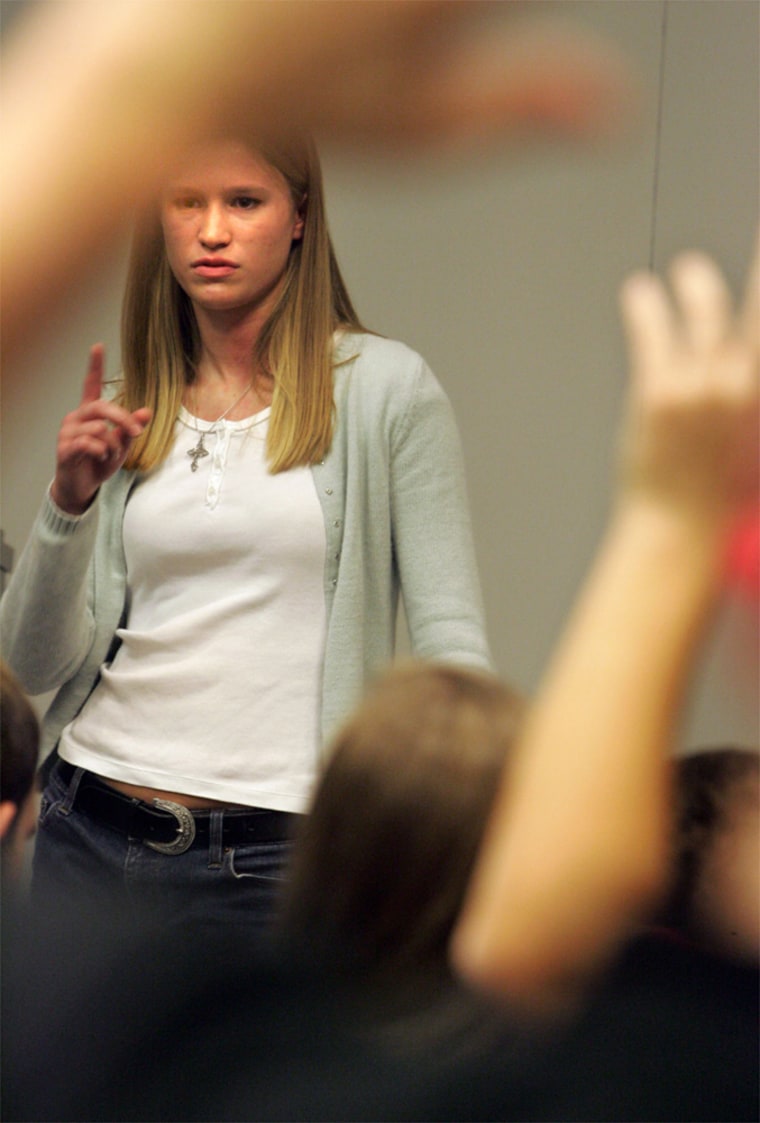The College Republicans at Emory University need a new meeting room. A smaller one.
They used to draw 50 or 60 kids to adrenaline-fueled campus meetings, when the presidential election was just around the corner and first-time voters were pumped to get involved. Now, with the election over, a couple dozen Emory Republicans gathered on the Atlanta campus for a pre-finals pizza party. Like politically minded college students everywhere, they’re wondering how to keep membership up without the excitement of a presidential race.
At Emory, the sales pitch includes pizza parties, speakers, a chance to hone debate skills — even an unofficial matchmaker role.
“It’s a good place to meet people that think similarly as you do, a good place for camaraderie,” said senior Lauren Daugherty, chairwoman of Emory College Republicans who saw dues spike and meetings swell at the beginning of the fall semester.
But drop-off is inevitable. After all, many of the college students were voting for the first time and aren’t used to working for political parties. And the most active student volunteers were also more likely than their older colleagues to need a breather after the election.
Take 18-year-old Hank Clay for example. The University of Georgia student used to be president of a Young Democrats club at his junior college. He worked tirelessly before he was even old enough to vote. But he took November’s loss hard and is taking a break from his campus Democratic group.
“I pretty much went into depression for a couple weeks,” he said. “I’m still having a little bit of that. That probably has resulted in a lack of motivation and frustration for a lot of people.”
Imagine, he said, the roller-coaster wrought on young Democrats getting passionate about politics for the first time: “We thought we didn’t have a chance, and then we thought we did, and then we thought we didn’t, and then we thought we did, and then it turned out we didn’t.”
Both sides on a break
Even the University of Georgia’s College Republicans, the nation’s largest chapter with more than 3,000 members, took a break after President Bush won re-election.
“We were so worn out from campaigning,” said club president Andrew Dill.
Some campus activists fear that students will now forget them, turning their attention to finals, then to winter break, and then to the spring semester, and then, well, they might just drop out of political activity altogether.
At Dartmouth College, where membership in the College Republicans group doubled from 150 to 300 students this semester, club president Jesse Roisin is busy finding new activities to keep new members interested.
“The beautiful thing about an election is that it gets people involved emotionally. Now we have to work at it,” Roisin said.
Maybe they could look to Valdosta State University in Valdosta, Ga., where campus Democrat and Republican clubs recently put on a paintball game against each other to keep the competitive atmosphere alive. Or to Kansas State University, where the College Republicans are planning presidential inauguration parties.
“We saw a dramatic increase” in membership this fall, said KSU College Republican Colin Crume. Monthly meetings were increased to biweekly affairs, and finally this fall to weekly meetings, some drawing more than 60 people. Now the meeting schedule is being ratcheted back, and the Republicans are trying to act more like a social club.
“It’s been more about hanging out, having conversations and building relationships, rather than on the business side of campaigning for an election,” Crume said.
Natural trend
National political parties insist they’re not worried that recruitment efforts were wasted on college students this fall. Older voters, they point out, often lose interest, too, when the presidential hoopla subsides.
“We have not seen one e-mail or gotten one phone call by a young person saying, ‘I give up. Our guy lost,”’ said Jane Fleming, executive director of Young Democrats of America, which includes college, high school and young professional clubs.
Workers with Campus Compact, a nonpartisan group of college presidents who try to get students engaged in civic life, agreed.
“This is not an apathetic generation. They’re really caring,” said Elizabeth Hollander, executive director of the Washington-based advocacy group.
Back at the Emory pizza party, Republican student Katie Mitchell said she wasn’t even sad that club membership has dipped. After signing a holiday card for a soldier in Iraq, Mitchell said she was glad for a smaller crew of motivated political junkies.
“Now, it’s, like, the real people who care,” she said.
